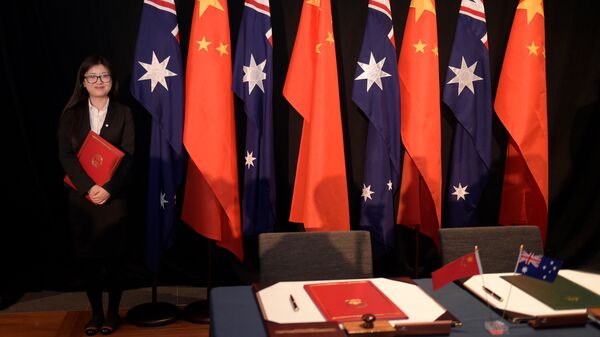Andrew Giles, Australia’s shadow minister for multicultural affairs, has appealed to parliament, calling all politicians to unite against the “scourge of racism” and work out a “national strategy” to tackle it, warning that the recently reported rise in racially-charged incidents in the country would be detrimental to social cohesion.
“It is critical that our parliament unites in standing up for multiculturalism and for every Australian, that we recognise that Chinese Australians have been subjected to awful and shocking racism through the pandemic, and that we respond to this without equivocation", he said.
He went on to call “to start the process of recognising as a national parliament, that ending racism is a national responsibility – that when we say we’re all in this together, we mean it".
The senior Labor MP from the state of Victoria also hailed Liberal Senator Andrew Bragg for rising against racism, as the lawmaker is expected to address the Senate early next week on the matter, elaborating on his recent op-ed in which he expressed deep concerns and sadness about reports of a marked escalation in racial abuse with regard to Asian Australians.
Giles’s call came after more than 81,000 people signed a change.org petition denouncing racist attacks on Asian Australians during the coronavirus epidemic.
The #UnityOverFear petition urges PM Scott Morrison and other political leaders to “stand beside your fellow Australians to call for national unity and say no to racism against Asian Australians”.
Meanwhile, in another sensitive development, just this week, China’s Ministry of Education warned students to possibly avoid going to Australia for their studies or other purposes citing a string of local “incidents of discrimination” targeting people of Asian descent.
Top government ministers and universities immediately fought back at the warning, with the education minister, Dan Tehan, saying Australia “rejects China’s assertions that Australia is an unsafe destination for international students”. However, the rhetoric is already perceived as a signal of another escalation in tensions between China and Australia, prompted by Australia’s early calls to conduct an international investigation into the origins of COVID-19 flare-ups, which locked down almost all nations for over two months.
The Chinese side has accused Australia of “smearing China” over the pandemic and thereby encouraging discriminatory attitudes.
“The Australian side should recognise the real problem rather than hiding its head in the sand", Chen Hong, director of the Australian Studies Centre at the East China Normal University in Shanghai told the state-run Global Times.
Meanwhile, the prime minister has opted for a reconciliatory tone, deploring the racist attacks and thanking Chinese Australians for providing “one of the greatest defences we had in those early weeks” of the COVID pandemic.
There have of late been numerous reports of people of Asian appearance experiencing discrimination and attacks in Australia during the pandemic. For instance, one survey by the community group Asian Australian Alliance recorded 178 incidents over a short, two-week stint.
On Wednesday, the multicultural affairs minister, Alan Tudge, acknowledged there had been “high-profile” cases of incidents against people of Asian appearance, but noted at the same time that these were the “actions of a tiny minority of cowardly idiots”.
“99.99% of Australians are as disgusted as I am, the prime minister or anyone else is – it’s not the Australian way and I don’t think it is by any stretch of the imagination the Australian norm", he told Sky News, further using as an example a top popular national TV show, where one of the jury is a person of Chinese descent, along with a few now famous contestants.




